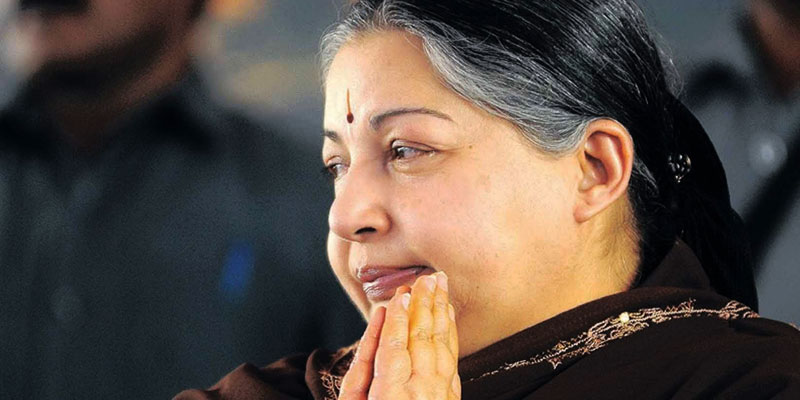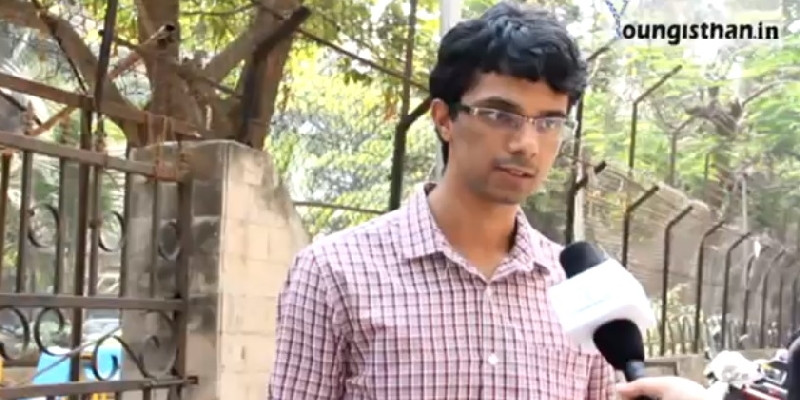In December 1996, around 10,500 saris, 750 pairs of footwear, and a 1.5 kg diamond studded gold-waist belt was unearthed during a property raid…
In December 1996, around 10,500 saris, 750 pairs of footwear, and a 1.5 kg diamond studded gold-waist belt was unearthed during a property raid.
That property was palatial Poes Garden of Chennai which belonged to J Jayalalithaa.
The raid had come after complaints of then Janata Party leader Subramanian Swamy (now BJP leader, since his Janata Party merged with BJP) who, on June 14, 1996, had alleged that Jayalalithaa had assets disproportionate to her known sources of income.
It was alleged that the value of Jayalalithaa’s assets increased to Rs.66.65 crore when she demitted office in 1996 after a five year stint. Before assuming office as Chief Minister on July 1, 1991, the value of her assets was Rs.2.01 crore, it was alleged.
The court directed the Directorate of Vigilance and Anti-Corruption wing to investigate the complaint.
Subsequently, an FIR was registered by the police on September 18, 1996 and a probe was conducted which also included search and seizure procedures at multiple locations including Hyderabad. A chargesheet was filed and witnesses examined.
This case later came to be known as the ‘Disproportionate Assets Case’. However, Jayalalithaa had then declared that she was drawing only Re.1 as salary.
The case was transferred to Bangalore in 2003 by the Supreme Court on a petition filed by DMK leader K Anbazhagan in which Swamy, impleaded himself in his capacity as the original complainant. Swamy also supported the transfer of cases out of Tamil Nadu for a fair trial.
Here is a chronology of the case:
Dec 7, 1996: Jayalalitha arrested. Many allegations follow, including accumulation of disproportionate assets.
1997: A prosecution launched in Additional Sessions Court in Chennai against Jayalalithaa and three others for having assets “disproportionate” to their known income.
June 4, 1997: Amma charge-sheeted for offences under Sections 120-B IPC, 13(2) read with 13(1)(e) of the Prevention of Corruption Act, 1988.
October 1, 1997: Madras High Court dismisses three petitions by Jayalalitha including one challenging sanction granted by then Governor M Fathima Beevi for prosecuting her in the wealth case.
2000, Trial progresses: By august 2000, 250 prosecution witnesses examined, only 10 more remained.
May 2001: AIADMK secures absolute majority in assembly elections and Jayalalitha becomes Chief Minister. Her appointment is challenged due to her conviction in October, 2000 in the TANSI (Tamil Nadu Small Industries Corporation) case. SC nullifies the appointment.
September 21, 2001: Jayalalithaa ceases to be Chief Minister.
2002: After her conviction is set aside, Jayalalithaa is elected to the Assembly in a bypoll from Andipatti constituency on Feb 21, 2002, and again sworn in as Chief Minister. Three public prosecutors resign as also senior counsel. Several prosecution witnesses resign from their earlier depositions after AIADMK returned to power.
2003: DMK general secretary K Anbazhagan approaches Supreme Court for transferring the trial to Karnataka on the ground that a fair trial was not possible in Tamil Nadu with Jayalalithaa as Chief Minister.
November 18, 2003: The Supreme Court transfers the case to Bangalore.
2011: Appearing before the court four times, Jayalalithaa had answered more than 1,000 questions in closed door hearings during which she had maintained that the case was “political vendetta”.
September 27, 2014: Convicted under the prevention of corruption act for disproportionate case in Bangalore by the Karnatka high court. Arrested and sentenced four years to jail.





